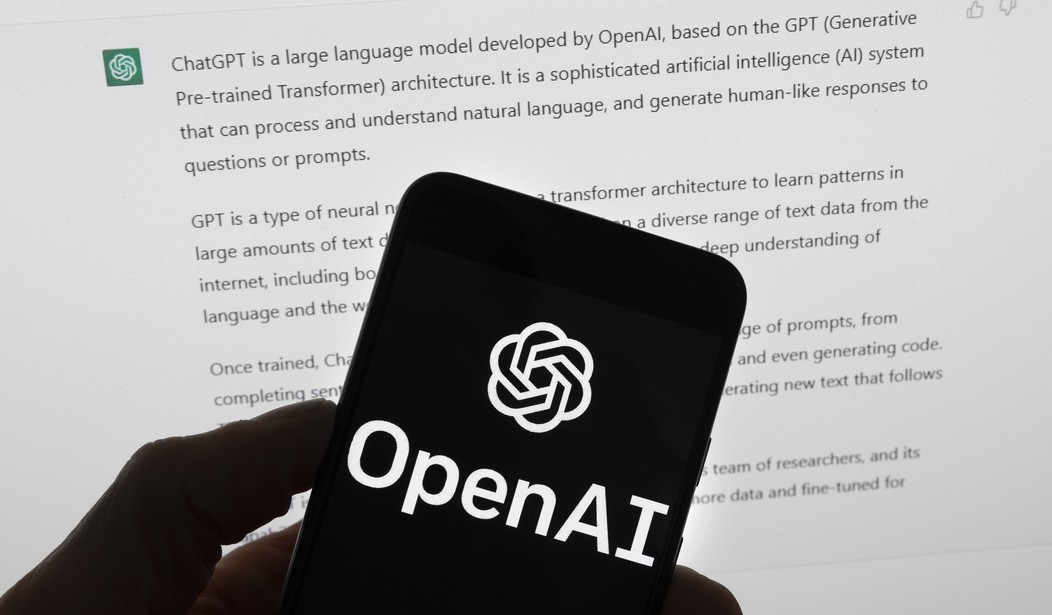We need to talk a little multibillion-dollar inside baseball before we get to today's weird tech news.
When Steve Jobs returned to Apple in 1997 and plucked British-born designer Jony Ive from the obscurity of the company's neglected design department, it wasn't just the beginning of a beautiful friendship — the pair were largely responsible for the iconic designs of the original iMac, iPod, iPhone, and MacBook Air.
Those products took Apple from a failing maker of niche computers to one of the most valuable (and certainly most ubiquitous) tech firms in the world.
Ive left Apple in 2019 after more than 25 years and launched an independent design firm, LoveFrom, to collaborate with global (typically luxury) brands on bespoke design projects. Ive's other startup is called io, which he launched last year with hopes of producing a consumer-friendly, palm-sized AI device.
Earlier this year, Sam Altman's LLM mega-corp OpenAI — creators of ChatGPT — bought io with Ive on board for $6.5 billion. Altman wants to put a consumer hardware face on the company's cloud-based chatbot.
Today's news is where that inside baseball gets interesting.
A Financial Times report on Monday (republished outside the paywall by Ars Technica) says that "Despite having hardware developed by Ive and his team," OpenAI and io face serious obstacles "in the device’s software and the infrastructure needed to power it."
These include deciding on the assistant’s “personality,” privacy issues, and budgeting for the computing power needed to run OpenAI’s models on a mass consumer device.
“Compute is another huge factor for the delay,” said one person close to Ive. “Amazon has the compute for an Alexa, so does Google [for its Home device], but OpenAI is struggling to get enough compute for ChatGPT, let alone an AI device—they need to fix that first.”
A person close to OpenAI said the teething troubles were simply normal parts of the product development process.
That last part is no surprise — designing a new product category is notoriously tough, and delays are just par for the course.
But what's the scalable solution for the cloud compute power needed to drive the mystery device? Amazon reportedly loses a staggering $10 billion a year running its Alexa digital assistant — and that figure is from before Amazon started transforming Alexa from a comparatively stupid digital assistant to an "intelligent" LLM.
If there's no backend, there's no product.
Amazon has the money to burn, and so does OpenAI. But eventually investors will demand to see some profits, and already OpenAI loses big-league money — an estimated $5 billion last year, and another $8-9 billion by the time 2025 is over.
But here's the trillion-parameter prompt: What problem does io's device solve for consumers? That Financial Times report says that io aims to "create a palm-sized device without a screen that can take audio and visual cues from the physical environment and respond to users’ requests."
Um...
There's hardly a consumer with cash in their pocket who doesn't already have a palm-sized AI assistant with them virtually every waking moment: their smartphone. Even if your phone isn't quite new enough (iPhone 15 or later; I'm not sure about Android) to run simpler AI prompts natively, it's still a nearly perfect frontend for apps like ChatGPT that run LLMs in the cloud.
Your phone already has all the sensors — cameras, microphone, gyroscope, GPS, etc. — to know exactly where you are and what you're doing. The only real limit is how you set your privacy controls, and mine are clamped down HARD.
And Another Thing: Speaking of privacy, the Financial Times source said the device would be “always on,” rather than triggered by a word or prompt. "The device’s sensors," they told FT, "would gather data throughout the day that would help to build its virtual assistant’s memory."
What makes io's device so much more than a smartphone that consumers just gotta have it, even without a screen?
Whatever it is, I'll be glued to my screen when OpenAI/io make their product announcement. They have a fascinating case to make, and I'm dying to see how they do it.
OpenAI is one of those groundbreaking companies that seems likely to emerge as one of the (highly profitable) survivors from the impending AI bubble pop, even though profits today remain elusive. And Ive is one of those once-in-a-generation designers — no matter what you think of Apple or their products — whose fingerprints are all over even his competitors' devices.
If there's any combination of talent that can figure out how to make the magical AI device people will clamor for even more than their smartphones, it's got to be them. I’m a gadget freak, so if they can make a gotta-have-it gadget (and maintain privacy through solid data anonymization), I might just buy one as soon as the whatever-it-is comes out.
But for now, not even Altman and Ive seem to know exactly where the whatever-it-is fits — in your life, or on their balance sheet.
Recommended: This Isn’t Your Father’s Weed — and It’s Tied to 40 Percent of Fatal Crashes
Editor’s Note: The Schumer Shutdown is here. Rather than put the American people first, Chuck Schumer and the radical Democrats forced a government shutdown for healthcare for illegals. They own this. Help us continue to report the truth about the Schumer Shutdown. Use promo code POTUS47 to get 74% off your VIP membership.










Join the conversation as a VIP Member